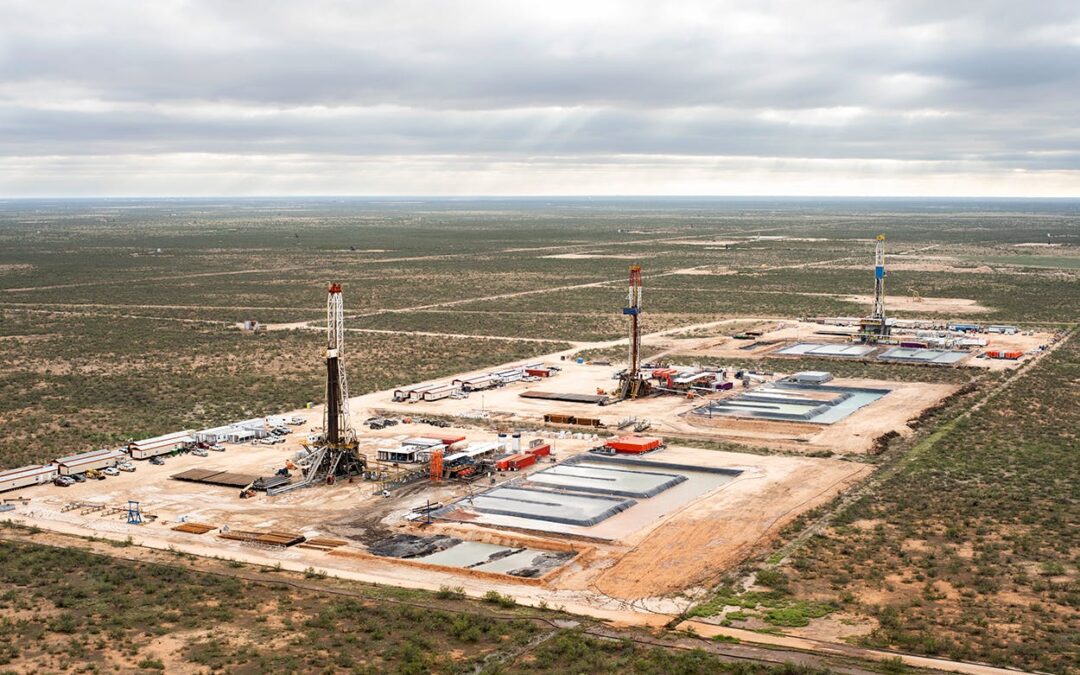(Source: Texas Monthly)
As Texas faces growing energy demands and frequent droughts, the oil and natural gas industry’s commitment to water recycling is proving crucial for sustainable water management and environmental protection.
Throughout Texas, the oil and natural gas industry is not only a major economic engine, but also a significant player in innovative water management practices to assist in environmental protection. With the state’s increasing energy demands and common droughts, the need for sustainable water use is absolutely necessary, and companies across Texas are demonstrating the industry’s commitment to water recycling and conservation.
Select Water Solutions, in collaboration with Occidental Petroleum (Oxy), recently announced the successful treatment and recycling of 50 million barrels of produced water at the South Curtis Ranch facility in the Midland Basin. Opened in March 2021, this latest achievement reflects the dedication and hard work of both companies involved. John Schmitz, the chairman, president, and CEO of Select Water Solutions, emphasized the dual benefits of the facility: delivering value to operator partners and providing significant environmental benefits to the community.
The Texas Oil & Gas Association (TXOGA) has been a strong advocate for water recycling initiatives. Chief among these initiatives was supporting the creation of the Texas Produced Water Consortium at Texas Tech University: a testament to the industry’s commitment to innovation. The consortium focuses on the economics, technology, and environmental impacts of produced water use, aiming to find sustainable and beneficial ways to recycle this resource.
TXOGA President Todd Staples praised the Consortium, emphasizing that “oil and natural gas companies are technology companies, and treating, reusing, and recycling produced water for beneficial use is becoming more common thanks to this industry’s commitment to innovation.”
In 2019, House Bill 3246 was signed into law, further enhancing the industry’s ability to recycle produced water, providing operators with more options and promoting sustainable practices. “Recycling produced water is becoming more common thanks to the oil and natural gas industry’s commitment to innovation and technological advances,” Staples said. “As technology improves, we anticipate that oil and natural gas wastewater will be recycled and treated into a new drought-proof source of water for beneficial use in the oil patch and beyond.”
The Texas Railroad Commission has approved numerous recycling projects aimed at reducing freshwater use in oil and natural gas exploration. New treatment technologies have made it possible to recycle water recovered from hydraulic fracturing, including treated flowback fluids. This not only conserves freshwater but also opens up possibilities for using lesser quality, non-potable water in fracking operations.
In the Permian Basin, operators are investing heavily in water recycling technologies. Over 75 percent of the 14 million barrels of water produced in the Permian are recycled, significantly reducing the reliance on freshwater sources. Companies like Chevron, Ovintiv, and ConocoPhillips are at the forefront of this innovation, with Chevron meeting 99 percent of its Permian Basin water demand through brackish groundwater and recycled produced water, and Ovintiv achieving 100 percent recycled water usage for completions in Midland and Martin counties.
Beyond the oil fields, companies like Valero are implementing robust water management practices in their refineries. Valero’s facilities use specialized bacteria to treat wastewater, which is then reused for irrigation and habitat maintenance. This approach not only reduces freshwater consumption, but also ensures compliance with stringent environmental regulations.
Valero’s efforts include installing facilities to recycle treated wastewater for irrigation and investing in desalination projects to secure water supply. Such initiatives demonstrate the oil and natural gas industry’s proactive approach to managing water resources sustainably.
The Texas Produced Water Consortium plays a significant role in advancing these initiatives. By studying the economics and technologies related to beneficial uses of produced water, the consortium aims to develop efficient models that protect public health and the environment. This collaborative effort ensures that the oil and natural gas industry can continue to meet energy demands while conserving important water resources.
The Texas oil and natural gas industry’s commitment to water recycling is a critical component of its broader sustainability efforts. Texas is setting a global standard for responsible water management. By prioritizing water reuse and recycling, the industry is not only reducing its freshwater consumption, but also proving that sustainable and abundant energy production is achievable. These efforts ensure that the state’s natural resources are preserved for future generations, highlighting the industry’s role in safeguarding the environment.

